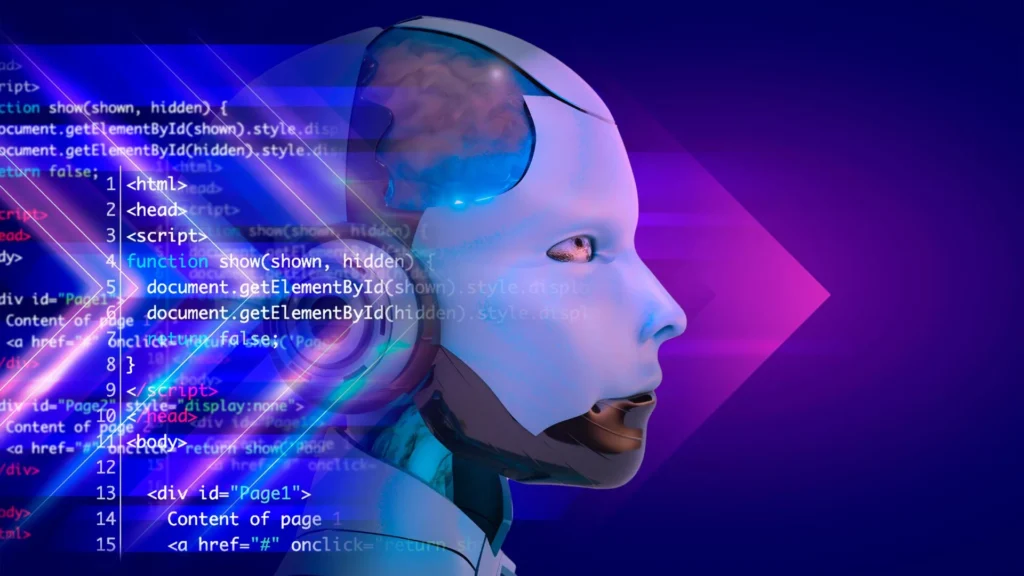The technology landscape is undergoing a significant transformation, and at the heart of it is Agentic AI—a new wave of artificial intelligence that’s poised to revolutionize how software is developed, managed, and deployed. According to a recent investor note from Bernstein, the evolution of large language models (LLMs) and autonomous AI agents is triggering a major shift from traditional programming methods to AI-powered software development.
AI Is Automating the Core of Software Development
Bernstein notes that a large portion of basic coding tasks will soon be taken over by AI. What once required human developers to spend hours writing, testing, and debugging code can now be handled in a fraction of the time by intelligent AI systems.
With tools like ChatGPT, Claude, Gemini, and other LLMs becoming more advanced, businesses can now automate everything from code generation to unit testing, feature estimation, and documentation writing. These AI tools are not just assisting programmers—they’re actively changing the way software is created, setting new benchmarks for speed, productivity, and quality.
AI Isn’t Replacing Humans—It’s Redefining Roles
Although AI will automate much of the routine development work, Bernstein stresses that human oversight will remain essential. Developers will still be needed to ensure code accuracy, manage software architecture, make design decisions, and supervise AI outputs.
Rather than being replaced, programmers will transition into new roles that require higher-level thinking, including system integration, project leadership, AI tool supervision, and code optimization. In short, developers will become strategic thinkers and AI managers, guiding intelligent systems to deliver precise results.

Agentic AI and the Future of Enterprise Automation
The scope of AI’s impact goes well beyond just software development. Bernstein predicts that autonomous AI systems will play a major role in enterprise automation, helping organizations streamline operations and reduce human workload across departments.
AI agents are already being deployed to optimize workflows, improve decision-making, and execute complex multi-step tasks across departments such as customer service, HR, finance, and IT operations. These systems can intelligently handle large datasets, automate repetitive tasks, and generate insights that enable smarter business strategies.
Decline in Programmer Population, Rise in Specialized Talent
As AI continues to handle more coding responsibilities, Bernstein foresees a decline in the global programmer population over the next decade. However, this doesn’t signal job losses—it highlights a shift in skill demand.
The future workforce will be more specialized, with higher demand for roles such as:
- AI integration specialists
- Machine learning engineers
- System architects
- DevOps and automation experts
- Cybersecurity analysts focused on AI governance
These professionals will play a crucial role in monitoring AI performance, securing systems, and ensuring compliance in AI-driven development environments.
also read this:-BEL Share Price Jumps 15% in One Month: Will It Break Above ₹300 Soon?
Cost Efficiency Is Driving AI Adoption
One of the most compelling reasons businesses are adopting AI is the significant cost advantage. Bernstein estimates that AI agents are nearly 20 times cheaper than traditional human labor, offering massive savings for enterprises.
An excellent real-world example is ServiceNow (NYSE:NOW). The company has reported that its AI-driven systems generate $325 million in annualized value, increase workplace productivity by 20%, and save over 400,000 labor hours annually. These numbers showcase just how powerful AI can be in delivering both operational efficiency and financial value.
Traditional IT Models Face Disruption
Bernstein warns that legacy IT service models and traditional BPM (Business Process Management) systems are at high risk of disruption. Companies that continue to rely on manual, labor-intensive software development and operations may find themselves unable to compete with AI-driven, fast-moving organizations.
This shift is not just about adopting AI tools—it’s about rethinking the entire tech stack. Forward-thinking businesses are now redesigning their systems from the ground up, using AI-first approaches that enable scalability, automation, and faster innovation cycles.
also read this: From Apps to Agents: How the AI-Native Tech Stack Is Transforming Software
The Road Ahead: Embrace the Change
As Agentic AI continues to evolve, the software development landscape will look entirely different in the coming years. Companies that invest early in AI integration, training, and system upgrades will gain a significant edge over competitors.
While AI will handle the heavy lifting, the need for skilled human professionals will not disappear—it will transform. The future of work in tech will be collaborative, where humans and AI work side by side to build better, smarter, and faster systems.
In conclusion, Bernstein’s note makes one thing very clear: the future of software development will not be coded line by line—it will be orchestrated by intelligent systems. The time to prepare for this shift is now.




